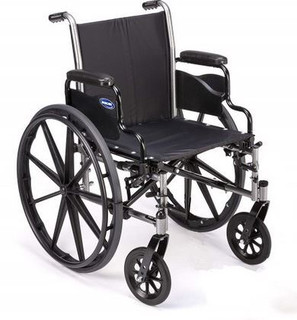Dealing with Difficult Elderly Behavior: A Compassionate Guide
As our loved ones age, we often find ourselves stepping into caregiving roles. While this can be a fulfilling and rewarding experience, it can also come with its challenges, especially when dealing with difficult behaviors. Whether caused by aging, medical conditions, or emotional struggles, these behaviors can test patience and understanding. Here’s a guide to help you navigate these moments with empathy and effectiveness
1. Understand the Underlying CauseBehavioral changes in the elderly often stem from specific causes, including:
- Health Issues: Chronic pain, medication side effects, or cognitive decline (like dementia or Alzheimer’s) can manifest in irritability or confusion.
- Emotional Factors: Feelings of loneliness, loss of independence, or fear of the future may lead to frustration or withdrawal.
- Environmental Changes: Moving to a new place or adapting to unfamiliar routines can be overwhelming.
Taking the time to identify potential triggers is the first step toward addressing the behavior constructively.
2. Respond with Empathy, Not FrustrationWhile it’s natural to feel exasperated, reacting with anger often exacerbates the situation. Instead:
- Pause Before Responding: Take a deep breath and ground yourself before replying.
- Acknowledge Their Feelings: Validate their emotions, even if their reaction seems unreasonable. Phrases like, “I can see this is really upsetting for you,” can help diffuse tension.
Older adults may struggle with processing information quickly or accurately, so clarity is key.
- Use Simple Language: Avoid jargon or overly complex explanations.
- Speak Softly and Slowly: A calm tone helps reduce anxiety.
- Reassure Them: Remind them they are loved and safe.
While compassion is vital, it’s equally important to set boundaries, especially if the behavior becomes harmful or abusive.
- Stay Firm Yet Kind: Communicate limits respectfully. For instance, say, “I can’t help you effectively when you yell at me. Let’s try talking calmly.”
- Seek Support: If their behavior becomes unmanageable, don’t hesitate to involve other family members, professional caregivers, or support groups.
Routines can bring a sense of stability and predictability, which is especially beneficial for those with memory issues or anxiety. Ensure the routine includes:
- Regular meals.
- Consistent sleep schedules.
- Activities that they enjoy or find meaningful.
Caring for someone with difficult behavior can be draining. To avoid burnout:
- Seek Respite Care: Hire a professional caregiver or ask a family member to step in when needed.
- Join Support Groups: Sharing experiences with others in similar situations can provide emotional relief.
- Prioritize Self-Care: Make time for hobbies, exercise, and relaxation to recharge.
Sometimes, difficult behaviors indicate deeper issues that require medical or psychological intervention. If their behavior is extreme, persistent, or drastically different from usual, consult a healthcare professional for guidance.
ConclusionDealing with difficult elderly behavior is not easy, but approaching it with patience, understanding, and the right strategies can make a significant difference. Remember, your loved one isn’t acting out to make life harder for you—they are likely grappling with their own fears, discomfort, or confusion. By addressing the root causes and responding with care, you can build a stronger, more supportive relationship while ensuring both their well-being and your own.
Seniors often need home medical supplies to cope with a myriad of issues from incontinence to mobility. SafeWell Medical Supply can help with their thousands of products all with fast and free shipping. Click on the logo below to see all SafeWell has to offer.



















